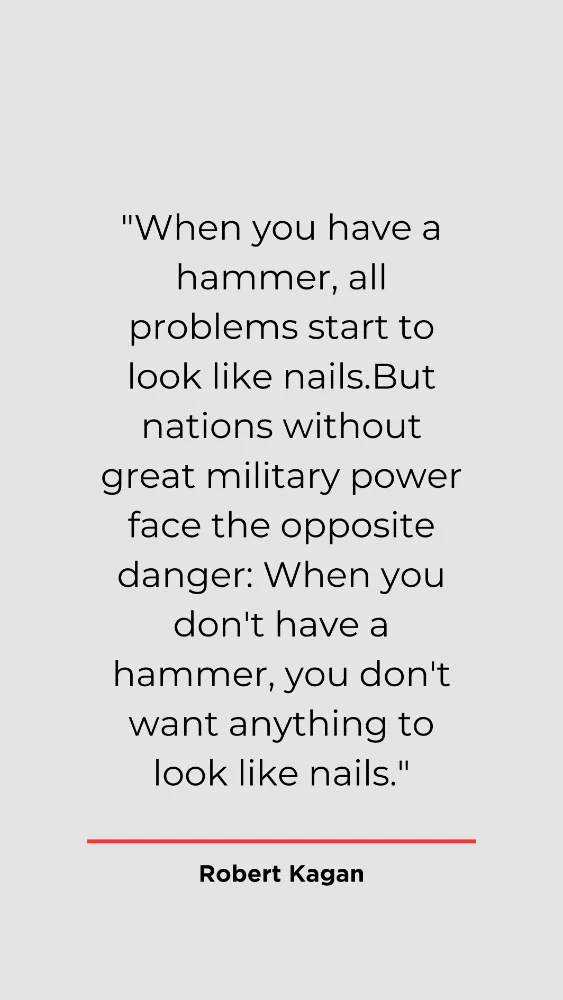Robert Kagan is an American scholar who was born on September 26, 1958. He’s known for criticizing how the United States deals with other countries and is a big supporter of a concept called “liberal interventionism.
Kagan helped start a group called the Project for the New American Century, and he works at a think tank called the Brookings Institution.
He’s been an adviser on foreign policy for Republican and Democratic politicians running for president.
Furthermore, Kagan even writes a monthly column for The Washington Post, discussing what’s happening worldwide.
Robert Kagan: Birth and Family in Athens
Robert Kagan’s early life and education are quite interesting. He was born in Athens, Greece. His father, Donald Kagan, was a history professor at Yale University, known for his expertise in the history of the Peloponnesian War.
The family had a connection to Lithuania through their Jewish heritage. Robert’s brother, Frederick, also became a military historian and author.
Regarding education, Robert earned a Bachelor of Arts (B.A.) in history from Yale in 1980. During his time there, he played a significant role as the editor-in-chief of the Yale Political Monthly in 1979, a publication he is credited with bringing back to life.
Robert Kagan: Mastering Public Policy
After Yale, he pursued further studies and obtained a master’s degree in public policy from Harvard’s Kennedy School of Government.
Later, he earned a Ph.D. in American history from American University in Washington, D.C.
On the personal front, Robert Kagan is married to Victoria Nuland, an American diplomat. She has held important roles, including deputy national security advisor to Vice President Dick Cheney and assistant secretary of state for European and Eurasian affairs during the Obama administration.
Kagan’s Role in the Inter-American Bureau
In 1983, Robert Kagan served as a foreign policy advisor to Jack Kemp, a Republican representative from New York.
Then, between 1984 and 1986, during Ronald Reagan’s presidency, Kagan worked as a speechwriter for Secretary of State George P. Shultz.
Additionally, he was a member of the United States Department of State Policy Planning Staff during this time. Later, from 1986 to 1988, Kagan served in the State Department Bureau of Inter-American Affairs.
Furthermore, Kagan and William Kristol co-founded the Project for the New American Century (PNAC), a now-closed think tank known for its neoconservative views.
Through PNAC, starting in 1998, Kagan became an early and vocal supporter of military actions in Syria, Iran, and Afghanistan.
He also advocated for the removal of Saddam Hussein and his regime from power. Following the 1998 bombing of Iraq, Kagan went further, urging then-President Bill Clinton to send ground troops to Iraq.
Shift to Think Tanks: Carnegie and Brookings
In January 2002, Kagan and Kristol made false claims in a Weekly Standard article. They asserted that Saddam Hussein was supporting the existence of a terrorist training camp in Iraq, complete with a Boeing 707 for practicing hijackings, and filled with non-Iraqi radical Muslims.
Moreover, they alleged that Mohamed Atta, one of the September 11 hijackers, had met with an Iraqi intelligence official several months before the attacks. However, these allegations were later proven to be false.
From 1998 to August 2010, Robert Kagan worked at the Carnegie Endowment for International Peace. Then, in September 2010, he became a senior fellow at the Brookings Institution.
Robert Kagan: Neoconservatism and Ideological Identity
During the 2008 presidential campaign, Kagan advised John McCain on foreign policy. McCain was the Republican candidate for President.
Since 2011, Kagan has been part of the State Department’s Foreign Affairs Policy Board, where he helps advise the Secretary of State. He worked with Secretaries of State Hillary Clinton and John Kerry.
A reviewer called Andrew Bacevich referred to Kagan as the main thinker for a foreign policy approach called neoconservatism. However, Kagan doesn’t like being called a ‘neocon’. Rather, he prefers to be seen as ‘liberal’ and ‘progressive’ in the American tradition.
In 2006, Robert Kagan expressed that Russia and China pose significant challenges to liberal values.
He stated that these two countries are resistant to the Western promotion of liberal politics globally, especially in regions that are strategic to them.
Broader Challenges to Liberalism
According to Kagan, Russia and China do not welcome the efforts of the liberal West to spread its political ideology.
He went on to argue that, unfortunately, terrorism, represented by groups like al-Qaeda, might not be the sole or even the most significant challenge faced by liberalism at that time.
In a February 2017 essay for Foreign Policy, Kagan continued his analysis, suggesting that the United States’ withdrawal from global affairs after the Cold War had given rise to a more assertive Russia and China.
He referred to these nations as “the two great revisionist powers” and warned that this shift in global dynamics, coupled with U.S. retrenchment, could lead to instability. Moreover, he believed it might start a conflict on the international stage.
Moving to October 2018, Kagan made a statement regarding Saudi Arabia in the context of the assassination of Jamal Khashoggi.
He argued that unless there was a willingness to impose consequences or “punish” Saudi Arabia for its involvement in the assassination, the country essentially retained power over those who refrained from taking action.
This viewpoint emphasizes the importance of holding nations accountable for their actions in the face of significant human rights violations.

Praise for Articulate Defense: Powell and the Bush Doctrine
Robert Kagan is a columnist for The Washington Post and has contributed to notable publications such as The New York Times, Foreign Affairs, The Wall Street Journal, Commentary, World Affairs, and Policy Review.
In a July 2000 piece, he critiqued Colin Powell’s political and strategic judgment, highlighting Powell’s reluctance to engage in conflicts without strong public support. Kagan alternately praised Powell for articulately defending the Bush Doctrine in a 2002 piece.
His 2003 book, “Of Paradise and Power,” asserted a divergence in U.S. and European approaches to international disputes.
In “Dangerous Nation” (2006), Kagan challenged the notion of U.S. isolationism. His essay “Not Fade Away” (2012) received acclaim from President Obama, and he has lectured on Realpolitik and American exceptionalism.
Robert Kagan: Inspiration in Lifelong Learning:
Robert Kagan’s life offers some important lessons. He shows us how crucial it is to have different skills and adapt.
From advising politicians to writing for big publications, Kagan has shown flexibility in his career. His way of giving feedback, where he looks at both the good and bad, teaches us to see things from different angles. Kagan’s dedication to learning, seen in his commitment to education, is inspiring.











